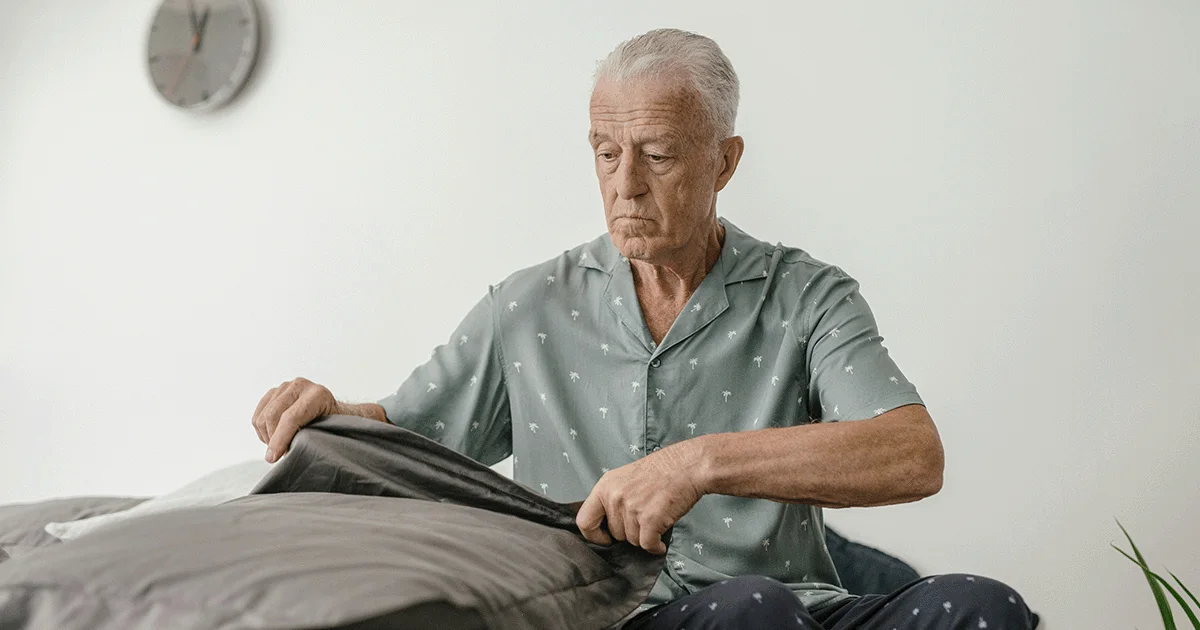Here's what we'll cover
Here's what we'll cover
Here's what we'll cover
Cialis (active ingredient tadalafil) is a prescription drug used to treat erectile dysfunction (ED). It’s part of a class of medications called PDE5 inhibitors. This class also includes the well-known ED medication, Viagra (active ingredient sildenafil).
Cialis works by increasing blood flow to the penis during arousal, making it easier to get an erection. With effects lasting up to 36 hours, Cialis is one of the longest-lasting ED medications (allowing for more spontaneous sex). However, Cialis doesn’t create spontaneous erections–to get the best effects from Cialis, you have to be aroused naturally and take your medication as prescribed. Continue reading to learn more about how to get the best effects from Cialis.
Cialis Important Safety Information: Read more about serious warnings and safety info.
Viagra Important Safety Information: Read more about serious warnings and safety info.
Cialis as-needed vs. daily dose
One way to ensure you’re getting the best effects from Cialis is to find a dose and schedule that works for you. There are two ways to take Cialis: a lower daily dose or a higher dose as-needed. Research has shown that both options are similarly effective in treating erectile dysfunction.
Cialis is available in 2.5 mg, 5 mg, 10 mg, and 20 mg doses. Healthcare providers typically start patients on a dose of 10mg and adjust as needed. The maximum daily dose of Cialis is 20 mg, taken as needed. Taking more than the maximum dose isn’t safe and is likely to increase your risk for side effects.
A once daily dose of Cialis means more flexibility and spontaneity in your sex life. Taking Cialis as needed means you’re more likely to have to plan for sex, but you don’t have to take a daily medication. Talk to your healthcare provider about which option works best for you.
Daily Rise Gummies might offer another solution better suited for daily life. They contain 7 mg of tadalafil (the same active ingredient as Cialis). The gummies are easy to take each day, so tadalafil builds in your system and delivers stronger, longer-lasting erections without needing to swallow a pill every day.
How should you take Cialis for best results?
If you take Cialis as-needed, you should take the medication around 30 minutes before sex. If you take a daily dose of Cialis, take it at the same time each day (regardless of when you have sex) for best results. You should never double your dose of Cialis or adjust your dose without the supervision of your healthcare provider, because it might have unwanted side effects.
What to avoid while on Cialis
Cialis is a safe and effective treatment for erectile dysfunction when taken as directed. However, there are some drug interactions to be aware of. Be sure to inform your healthcare provider of any medications or supplements you currently take. When taking Cialis, you should make sure to alert your provider if you take the following:
Nitrates (Nitroglycerin)
When combined with nitrates (such as nitroglycerin), a medication used to treat episodes of chest pain in people with heart disease, PDE5 inhibitors like Cialis can cause your blood pressure to drop to low levels.
Nitrites
For a similar reason, avoid amyl nitrite (more commonly known as "poppers") when taking Cialis and other PDE5 inhibitors. Nitrites—with an "i"—like nitrates—with an "a"—cause muscle relaxation and dilation of blood vessels, which, when combined with Cialis, can cause your blood pressure to drop.
Alcohol
As Shakespeare wrote about booze in Macbeth, "it [alcohol] provokes the desire, but it takes away the performance." While effective at lowering inhibitions, alcohol is a central nervous system depressant, and this can interfere with your ability to get an erection. It shouldn’t come as a surprise that people who drink alcohol regularly or in high amounts are more likely to experience erectile dysfunction.
The makers of Cialis warn that combining the ED drug with “too much” alcohol may cause side effects. “Too much” is defined as five glasses of wine or five shots of whiskey.
When combining alcohol and Cialis, common side effects are headache, facial flushing, and chest pain. Taking large quantities of alcohol alongside any medication has the potential to be dangerous, so always exercise caution with alcohol use.
Grapefruit juice
Some studies suggest that grapefruit juice could interact with the way your body metabolizes certain medications, causing higher levels of a drug than intended, including Cialis and other PDE5 inhibitors.
What if Cialis still isn’t working for me?
If you’re not satisfied with Cialis, a simple adjustment in dose and timing might be all you need. You should always speak to your healthcare provider before making any changes. Sometimes, the dosage or dosing schedule of a PDE5 inhibitor is not the main issue, especially when underlying health conditions cause or contribute to erectile dysfunction. Some medical conditions that can cause erectile dysfunction include:
High cholesterol
Low testosterone (or low T)
Cardiovascular disease
Treating these underlying health conditions may help improve your erectile dysfunction as well. And for a natural boost to your sexual function, there are some lifestyle changes that can make a difference.
Men who smoked cigarettes had higher rates of erectile dysfunction; those who quit smoking had improved erectile function. Diet and exercise can also improve sexual function. Moderate to vigorous aerobic exercise can also help improve erections, but always discuss with your healthcare provider before starting an exercise regimen if you have underlying health conditions.
Alternatives to Cialis
If you’re not happy with the results of Cialis, you have other options to treat erectile dysfunction. In addition to other PDE5 inhibitors (sildenafil, vardenafil, and avanafil), consider the following:
Lifestyle changes
Smoking cigarettes is associated with higher rates of erectile dysfunction. Research shows that people who quit smoking have improved erectile function. Diet and exercise also play a role, particularly moderate-to-intense aerobic exercise which can help improve erections. In one study, people who increased their fruit and vegetable intake, decreased alcoholic beverage consumption, and smoked less had better erectile function.
Treating underlying health problems
Many common health conditions can lead to erectile dysfunction, including diabetes, cardiovascular disease, low testosterone, obesity, and depression. Untreated, these conditions can interfere with your body’s ability to sustain an erection, even when using medications like tadalafil.
Daily Rise Gummies
Daily Rise Gummies combine the power of tadalafil with the convenience of a tasty, fruit-flavored gummy. Daily Rise Gummies contain 7 mg of tadalafil and are taken daily to keep you ready for great sex when the moment strikes.
Cialis is an effective treatment for erectile dysfunction. To get the best effects from Cialis, always take the medication as directed, avoid excessive alcohol consumption, and incorporate healthy lifestyle changes like smoking cessation and exercise.
DISCLAIMER
If you have any medical questions or concerns, please talk to your healthcare provider. The articles on Health Guide are underpinned by peer-reviewed research and information drawn from medical societies and governmental agencies. However, they are not a substitute for professional medical advice, diagnosis, or treatment.
References
Bailey, D. G., Dresser, G., & Arnold, J. M. (2013). Grapefruit-medication interactions: forbidden fruit or avoidable consequences?. CMAJ : Canadian Medical Association Journal, 185(4), 309–316. doi: 10.1503/cmaj.120951. Retrieved from https://pubmed.ncbi.nlm.nih.gov/23184849/
Brock, G., Ni, X., Oelke, M., et al. (2016). Efficacy of Continuous Dosing of Tadalafil Once Daily vs Tadalafil On Demand in Clinical Subgroups of Men With Erectile Dysfunction: A Descriptive Comparison Using the Integrated Tadalafil Databases. The Journal of Sexual Medicine, 13(5), 860–875. doi: 10.1016/j.jsxm.2016.02.171. Retrieved from https://pubmed.ncbi.nlm.nih.gov/27114197/
Eli Lilly and Company. (2013). New Study Shows Men Taking Cialis® (tadalafil) Tablets Once Daily Returned to Normal Erectile Function after Incomplete Response to As-Needed PDE5 Inhibitor Therapy. Retrieved Jun. 18, 2020 from https://investor.lilly.com/news-releases/news-release-details/new-study-shows-men-taking-cialisr-tadalafil-tablets-once-daily
Food and Drug Administration (FDA). (2007). Viagra (sildenafil citrate) tablets. Retrieved on Mar. 30, 2021 from https://www.accessdata.fda.gov/drugsatfda_docs/label/2007/020895s027lbl.pdf
Giorgetti, R., Tagliabracci, A., Schifano, F., et al. (2017). When "Chems" Meet Sex: A Rising Phenomenon Called "ChemSex". Current Neuropharmacology, 15(5), 762–770. doi: 10.2174/1570159X15666161117151148. Retrieved from https://www.ncbi.nlm.nih.gov/pmc/articles/PMC5771052/
Gong, B., Ma, M., Xie, W., et al. (2017). Direct comparison of tadalafil with sildenafil for the treatment of erectile dysfunction: a systematic review and meta-analysis. International Urology and Nephrology, 49(10), 1731–1740. doi: 10.1007/s11255-017-1644-5. Retrieved from https://www.ncbi.nlm.nih.gov/pmc/articles/PMC5603624/
Kim, J. N., Oh, J. J., Park, D. S., et al. (2019). Influence of Alcohol on Phosphodiesterase 5 inhibitors Use in Middle- to Old-Aged Men: A Comparative Study of Adverse Events. Sexual Medicine, 7(4), 425–432. doi: 10.1016/j.esxm.2019.07.004. Retrieved from https://www.ncbi.nlm.nih.gov/pmc/articles/PMC6963111/
Kovac, J. R., Labbate, C., Ramasamy, R., et al. (2015). Effects of cigarette smoking on erectile dysfunction. Andrologia, 47(10), 1087–1092. doi: 10.1111/and.12393. Retrieved from https://pubmed.ncbi.nlm.nih.gov/25557907/
Mykoniatis, I., Grammatikopoulou, M. G., Bouras, E., et al. (2018). Sexual Dysfunction Among Young Men: Overview of Dietary Components Associated With Erectile Dysfunction. The Journal of Sexual Medicine, 15(2), 176–182. doi: 10.1016/j.jsxm.2017.12.008. Retrieved from https://pubmed.ncbi.nlm.nih.gov/29325831/
Rew, K. T. & Heidelbaugh, J. J. (2016). Erectile Dysfunction. American Family Physician, 94(10), 820–827. Retrieved from https://pubmed.ncbi.nlm.nih.gov/27929275/
Schwartz, B. G. & Kloner, R. A. (2010). Drug interactions with phosphodiesterase-5 inhibitors used for the treatment of erectile dysfunction or pulmonary hypertension. Circulation, 122(1), 88–95. doi: 10.1161/CIRCULATIONAHA.110.944603. Retrieved from https://pubmed.ncbi.nlm.nih.gov/20606131/
Shen, X., Chen, F., Wang, F., et al. (2020). The Effect of Grapefruit Juice on the Pharmacokinetics of Tadalafil in Rats. BioMed Research International, 2020, 1631735. doi: 10.1155/2020/1631735. Retrieved from https://www.ncbi.nlm.nih.gov/pmc/articles/PMC7003282/
Silva, A. B., Sousa, N., Azevedo, L. F., & Martins, C. (2017). Physical activity and exercise for erectile dysfunction: systematic review and meta-analysis. British Journal of Sports Medicine, 51(19), 1419–1424. doi: 10.1136/bjsports-2016-096418. Retrieved from https://pubmed.ncbi.nlm.nih.gov/27707739/
Wang, X. M., Bai, Y. J., Yang, Y. B., et al. (2018). Alcohol intake and risk of erectile dysfunction: a dose-response meta-analysis of observational studies. International Journal of Impotence Research, 30(6), 342–351. doi: 10.1038/s41443-018-0022-x. Retrieved from https://pubmed.ncbi.nlm.nih.gov/30232467/












